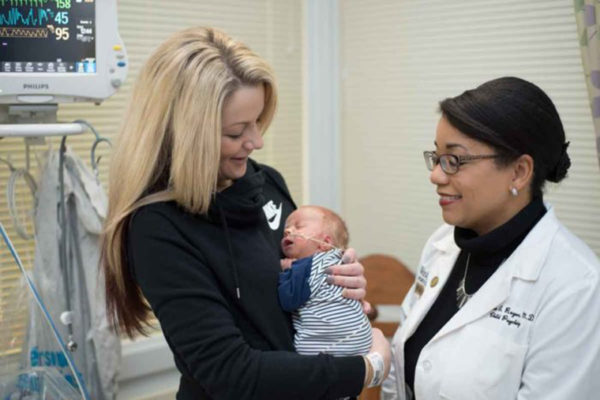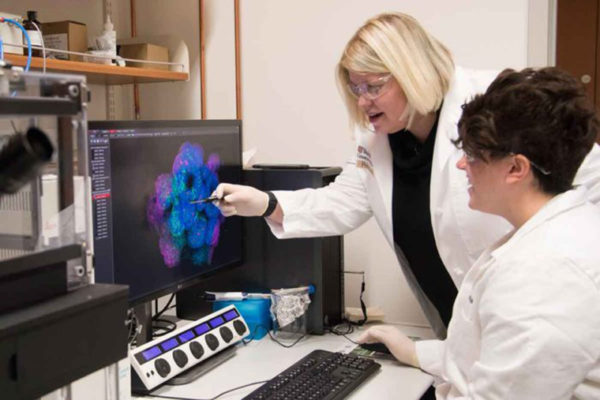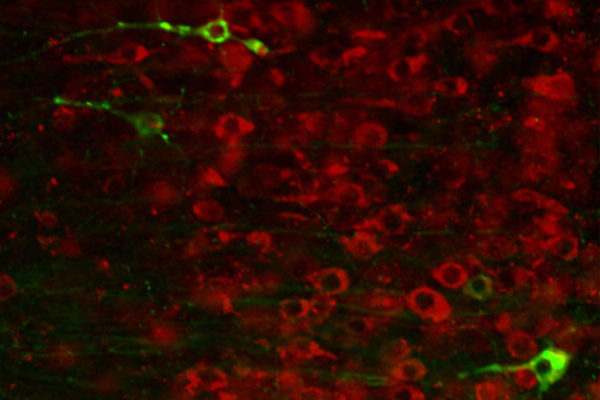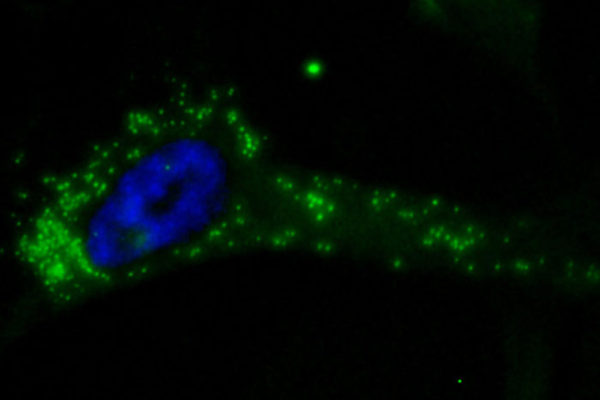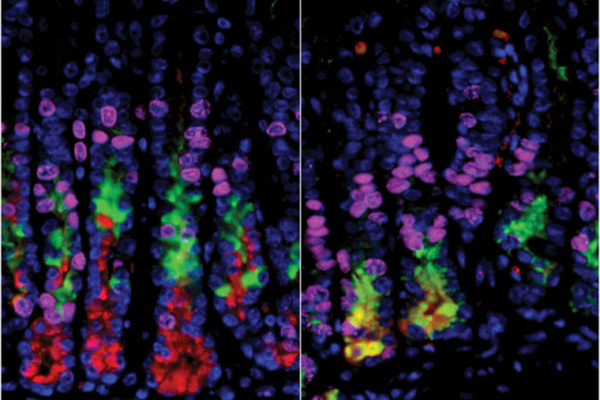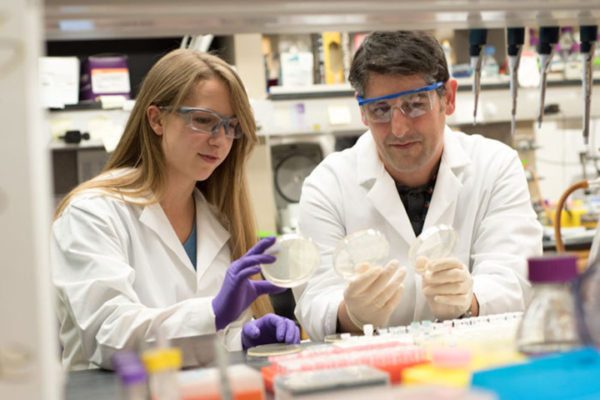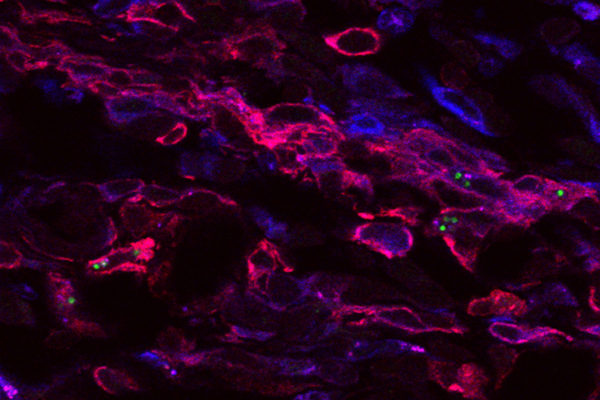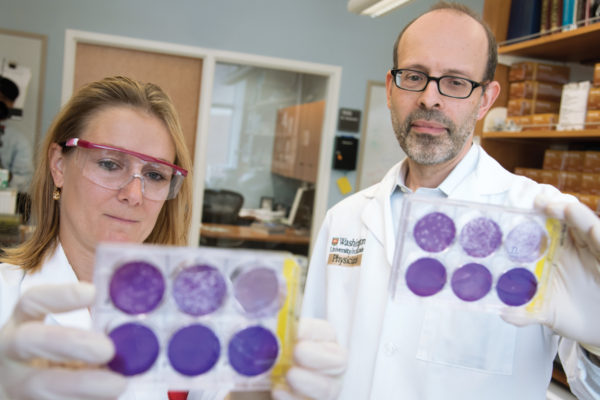Early signs of anxiety, depression may be evident in newborns
Early predictors of anxiety and depression may be evident in the brain even at birth, suggests a study at Washington University School of Medicine in St. Louis.
‘Mini-guts’ offer clues to pediatric GI illness
Using immature stem cells to create a miniature model of the gut in the laboratory, researchers at Washington University School of Medicine in St. Louis and the University of Pittsburgh have determined how infection-causing enteroviruses enter the intestine.
Online database aims to collect, organize research on cancer mutations
Researchers at the School of Medicine have developed an online “knowledgebase” intended for the gathering and organization of the vast body of knowledge known as cancer genomics.
Drug compound halts Alzheimer’s-related damage in mice
Researchers at the School of Medicine have shown that levels of tau protein can be reduced – and some of the neurological damage caused by tau even reversed – by a synthetic molecule that targets genetic instructions. The findings are important for Alzheimer’s and other neurological diseases.
Study unveils new way to starve tumors to death
School of Medicine scientists have exploited a common weak point in cancer cell metabolism, forcing tumor cells to reveal the backup fuel supply routes they rely on when this weak point is compromised. Mapping these secondary routes, the researchers also identified drugs that block them.
New insight into origin of stomach cancer
New research at the School of Medicine and Siteman Cancer Center have found that damage to acid-secreting cells alone doesn’t jump-start the transformation of healthy cells into precancerous cells — at least in a mouse model.
New genetic engineering technique could help design, study biological systems
A new technique will help biologists tinker with genes, whether the goal is to turn cells into tiny factories churning out medicines, modify crops to grow with limited water or study the effects of a gene on human health.
WashU Expert: Advice to FDA, NIH
Michael S. Kinch, associate vice chancellor and professor of biochemistry and molecular biophysics in the School of Medicine at Washington University in St. Louis, is director of the Centers for Research Innovation in Biotechnology & Drug Discovery at the university. He is also author of the newly published “Prescription for Change,” an analysis of the looming crisis in the pharmaceutical industry.
Persistent infection keeps immune memory sharp, leading to long-term protection
Researchers at the School of Medicine studying leishmaniasis, a tropical disease that kills tens of thousands of people every year, believe they have found an explanation for the seemingly paradoxical connection between long-term infection and long-term immunity.
Resisting Zika
As the Zika epidemic took hold, leaders at the National Institutes of Health (NIH) realized they needed to learn about the virus quickly. They started phoning select scientists, and offered funding for Zika research. The School of Medicine answered the call
Older Stories
